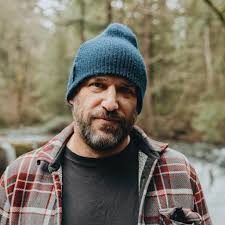This piece is excerpted and adapted from Jared Ayers’ forthcoming book, You Can Trust A God With Scars, available from NavPress on September 9. It’s available for preorder now wherever you buy your books.
The Presence of a Hidden God
Blaise Pascal was a brilliant seventeenth-century French mathematician, physicist, philosopher, and writer. In 1654, after his father fell gravely ill, he experienced the beginnings of what became a dramatic, and intense, conversion to Christian faith. Several years later, he penned his Pensées, or “Thoughts,” on Christianity, in which he observed that “What can be seen on earth points to neither the total absence nor the obvious presence of divinity, but to the presence of a hidden God. Everything bears this mark.”

1623-1662
I think Pascal’s pronouncement strikes the right note.
For the last few hundred years, those of us who inhabit the global West have lived our lives within what philosopher Charles Taylor calls “the immanent frame”– our working assumption about life is that this material world is all that exists. Nevertheless, we remain haunted by a stubborn thirst for transcendence which refuses to disappear. Like the roots of a great, old oak tree which keep pressing up through the soil, no matter how often a developer paves over them with concrete or asphalt, our yearning for transcendence keeps on pushing through the cracks of even the most secular life.
Christians are bold to say that this stubborn desire for spiritual reality, that keeps pushing through the seams and cracks of an otherwise secular existence, resides in us because we were made for transcendence, for communion with the One who made you and I and all things.
Hearing the Voice

One of my favorite indie rock songwriters is the musician David Bazan. His catalog across the years, both as front man of the band Pedro the Lion and in his solo work, charts his journey from his struggles with the fundamentalist faith he inherited from his family to his eventual loss of belief. His 2009 album Curse Your Branches constituted his formal breakup with institutional Christianity. It explores, with unrelenting honesty, Bazan’s struggles with the Christian teaching regarding the origins of sin, his revulsion at the church’s sundry sex scandals, his skepticism about supposed “proofs” for Christian faith, and more.
On one sticky August evening some years ago, I made my way to Philadelphia’s First Unitarian Church to see him in concert. David Bazan performed in the basement of “The Church,” as concertgoers nickname it, that night for several hours. He played his way around his early Pedro the Lion catalog and straight through to the searing songs comprising Curse Your Branches. In between songs, he’d often take questions from audience members and hold forth on his own disillusionment. Finally, at the end of the evening, he closed his set with a heartbreakingly honest number titled “In Stitches.” As he sung about wrestling with drinking to numb his spiritual struggles, and fielding his daughter’s searching questions about God, he sung a startling admission:
I might as well admit it
Like I even have a choice
The crew have killed the captain
But they still can hear his voice
The wrenching honesty I heard in Bazan’s voice that night is a picture of the conditions in which we find ourselves. The currents of the twenty-first-century West in which we’re immersed would claim there’s no Captain after all. Or that our technological advances, our sophistication, and our supposed enlightenment have killed off any primitive need we once had for one.
But Pascal, and a couple millennia of God’s people along with him, dare to say: listen a little longer to the mysteries of your life. Savor more deeply the beauty and meaning and love you’ve tasted. Be a bit more curious about your sorrow and outrage at the injustice and villainy that greet us daily on the news, in our neighborhoods, and around the globe. Look. Taste. Wonder. You may just hear an echo of the Voice we assumed was gone all along.


4 Responses
I appreciated this reflection. It is sad that so many feel they need to walk away from the church in order to be honest with themselves. I am personally uncomfortable with the term, “post-Christian” because it presumes there was a period when the church was more Christian.
It is quite self-insulting that humans can declare the unkillable Captain dead. It is equally self-insulting, and perhaps just as destructive, when believers declare, with certainty, that their own beliefs and practices
accurately reflect the mind of The Captain. John 9: 41: “If ye were blind, you should have no sin: but now ye say, We see; therefore your sin remains.”
Thank you Jared. Pastoral and thought provoking. I look forward to reading your book
Wow! “ Look. Taste. Wonder. You may just hear an echo of the Voice we assumed was gone all along.”
If you are interested, I wrote a book called Beyond the Wager: The Christian Brilliance of Blaise Pascal (InterVarsity-Academic, 2024).